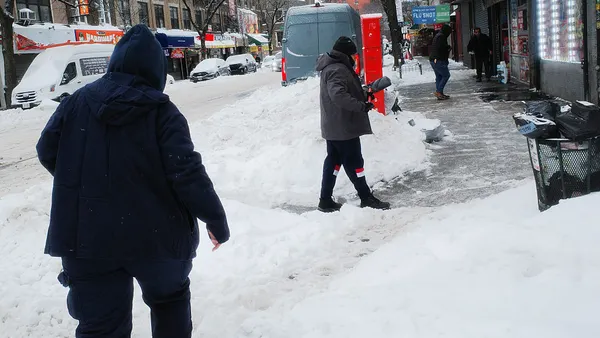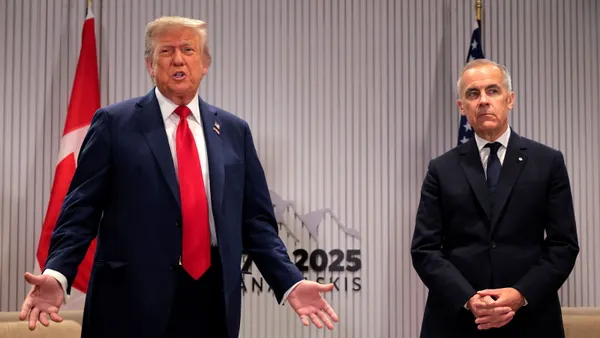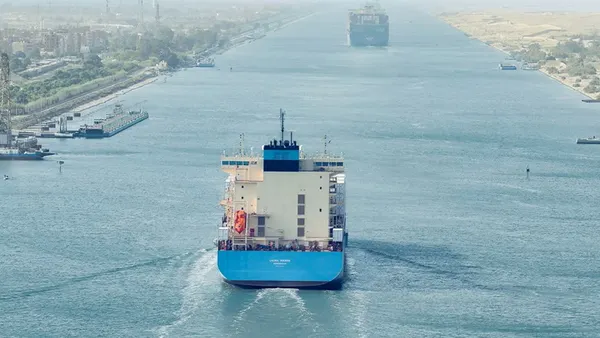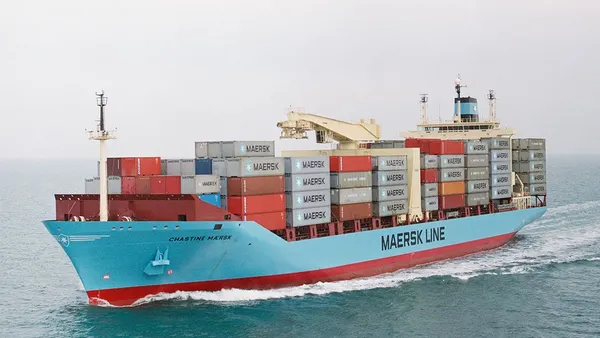Dive Brief:
- A picket line at the Midwest Terminals of Toledo disrupted shipping operations in Lake Erie this week, before the U.S. Coast Guard intervened Wednesday, Bill Wockey, trustee of International Longshoremen's Association (ILA) Local 1982 chapter told Supply Chain Dive.
- Workers associated with the ILA chapter were protesting a years-long contract dispute with the facility, alleging discrimination, The Toledo Blade reports.
- Three ships were left stranded at the Port of Toledo. The moored ships were two federal bulk carriers and a dutch cargo vessel. One vessel had been moored for 10 days, while the other two were destined to go to Sarnia in Ontario, Canada, and Milwaukee, Wisconsin, according to data from Marine Traffic.
Dive Insight:
Global commerce depends greatly on a select few shipping routes, traversing through so-called "freight bottlenecks," like the Panama Canal. Not all choke points are as grand as the canal, though — getting goods and fuel inland often requires vessels to go through waterways like Toledo's Maumee River before they travel by truck or rail.
In what seems like a flash, operational issues or labor disputes can disrupt the entire flow of goods, for hours, days or even weeks.
On April 12, a dispute between the Panama Canal Authority (ACP) and tugboat captains led to a brief disruption at the waterway's Neopanamax locks. "The Panama Canal normalized transits through its Neopanamax locks the next day," according to a statement provided to gCaptain, but the event "compromised the canal’s performance and caused economic loss."
According to that statement, tugboat captains failed to comply with mandatory procedures, causing the incident. The next day, the International Transport Workers' Federation (ITF) sent a statement to Supply Chain Dive, saying it was disappointed by the "misleading" characterization of events by ACP.
"We are in possession of correspondence showing that for more than two years, UCOC and other maritime unions warned the APC about issues regarding training, safety and operations in the new canal locks," the ITF said. "Most of this correspondence was ignored, and on the few occasions that it was not the ACP’s responses were at best evasive and did not genuinely address the issues raised."
Local and federal authorities typically get involved to resolve labor disputes between port authorities and labor unions. The speed with which such issues are resolved are as indicative of a supply chain's — or country's — agility as the on-time performance of goods shipped.
Amid the infamous West Coast port strikes of 2014 and 2015, then-President Barack Obama intervened, summoning various parties to the White House to avert further economic damage. In Toledo, the U.S. Coast Guard intervened to provide passage to the three moored ships, after calls from the mayor and federal representatives to find a solution.
In Panama, the International Labour Organization recommended the government facilitate dialogue between the disputing parties to avoid further or future disruptions, according to the ITF.














